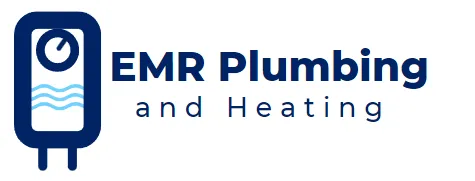What are the Different Types
of Water Heaters for Your Home?
If you are in the market to purchase a new water heater, it's essential to assess various factors like energy efficiency, hot water capacity, and sustainability. Our guide offers an in-depth review of the different types of water heaters available in the market today, including traditional tanks, solar, and tankless units, to help you make an informed decision that meets your household's needs. Keep reading and weigh each option's pros and cons carefully to find the appropriate fit for you.

Traditional Storage Tank Water Heaters
Tank-style water heaters are a common type of appliance that heat and store water in insulated tanks with gas, electric, or oil. These units provide hot water instantly upon demand.
Pros:
Lower cost.
Longer warranty periods.
Generally easy to maintain.
Cons:
The low efficiency of traditional storage tank water heaters results in high operating expenses.
They have a limited capacity, which may cause a shortage of hot water when required.
Leaks or failures can also result in water damage, posing a safety hazard.


Tankless Water Heaters
Tankless water heaters are a contemporary and efficient alternative to traditional models with several advantages. Instead of heating and maintaining water in a large tank, they heat it on demand, yielding energy and space savings. Despite the higher initial price, the long-term returns on reduced utility costs make tankless models a prime option.
Pros:
Compared to traditional water heaters, they are a modern and efficient way to provide hot water.
Instead of heating water in a large tank and maintaining a reservoir, they heat it on demand. This saves both energy and space.
Although the initial cost may be higher than traditional water heaters, the long-term utility savings are significant.
Cons:
They come with a higher upfront cost compared to traditional storage tank water heaters.
Venting complications may arise from additional piping or ductwork requirements, particularly in restricted spaces.
They are not the best option for high demand applications owing to their limited capacity, which means there is restricted hot water availability per use.
Heat Pump Water Heaters
Heat pump water heaters offer a cost-effective and highly efficient solution for heating water. By using a small compressor to transfer heat from the air, they are able to provide hot water at a nominal cost. Additionally, their electricity-free operation makes them a valuable backup during power outages.
Pros:
Heat pump water heaters contribute to a reduction in utility bills by consuming energy efficiently.
The technology behind these heaters is based on the utilization of renewable energy from the air.
These heaters can still provide hot water even during power outages.
Cons:
They can be more expensive upfront compared to traditional water heaters.
Installation could be challenging due to added ventilation and space requirements.
Their limited capacity can lead to less hot water overall.
.

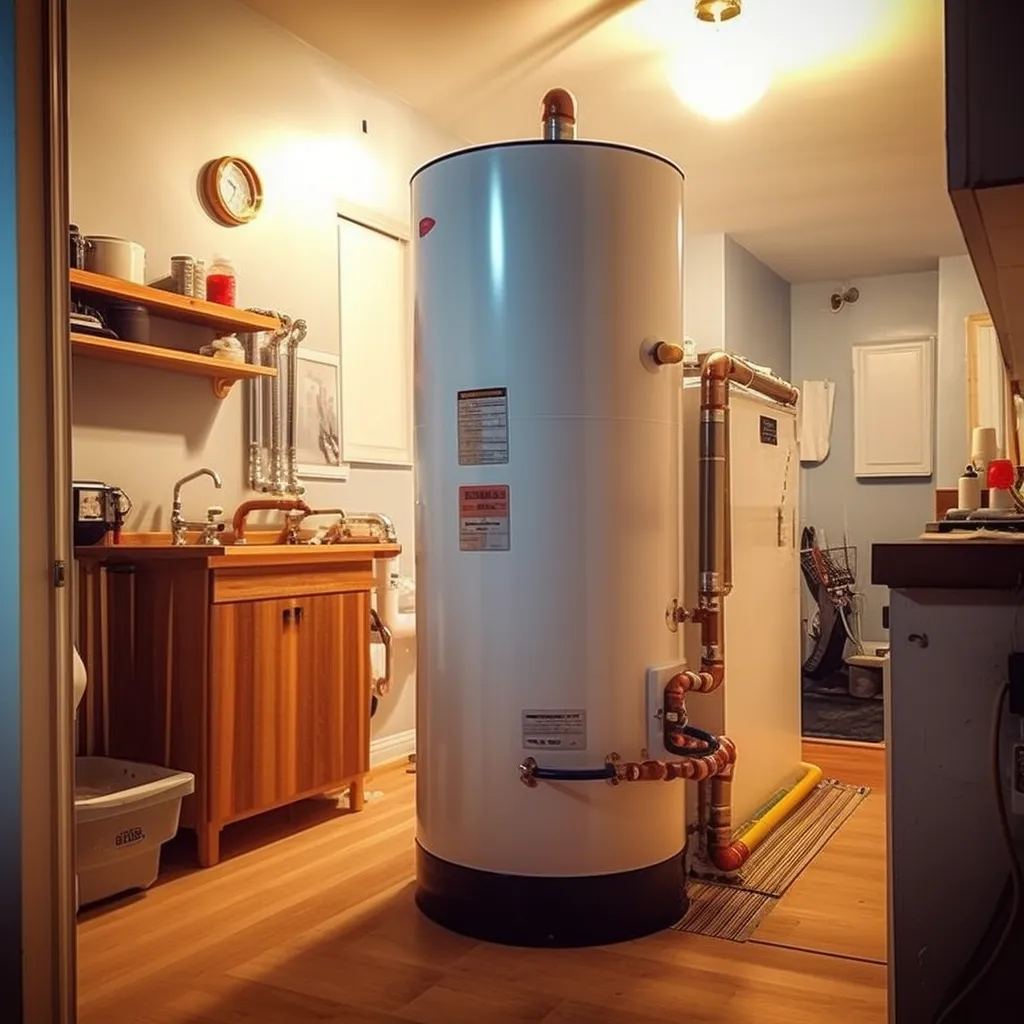
Heat Pump Hybrid Water Heaters
Heat pump hybrid water heaters incorporate the benefits of both conventional storage tanks and heat pumps. This combination results in significantly lower operating costs and improved energy efficiency, making it a better investment choice. Despite the higher initial investment, it provides superior functionality and effectiveness compared to traditional water heaters.
Pros:
Heat pump hybrid water heaters are a sustainable and energy-efficient solution that can significantly reduce monthly utility bills, thanks to their advanced technology.
By utilizing renewable energy from the surrounding air, these heaters conserve electricity while delivering an uninterrupted supply of hot water.
They are capable of functioning during power outages, which adds to their value.
Heat pump hybrid water heaters have a longer lifespan than conventional storage tank heaters.
Cons:
Heat pump hybrid water heaters have an increased upfront cost compared to traditional storage units.
They may require additional space and ventilation, which can create installation challenges.
Limited capacity means hot water may be scarce for each use.
If the tank leaks or fails, water damage can occur.
The heat pump aspect can also cause some noise.
Heating and cooling can be problematic in warm climates. Rebates or incentives may be region-dependent.
Solar Powered Water Heaters
A solar-powered water heater is a helpful tool for reducing monthly utility expenses while benefiting from renewable energy. Active and passive systems are the two primary types available. They work by heating stored water, providing a straightforward approach to save money.
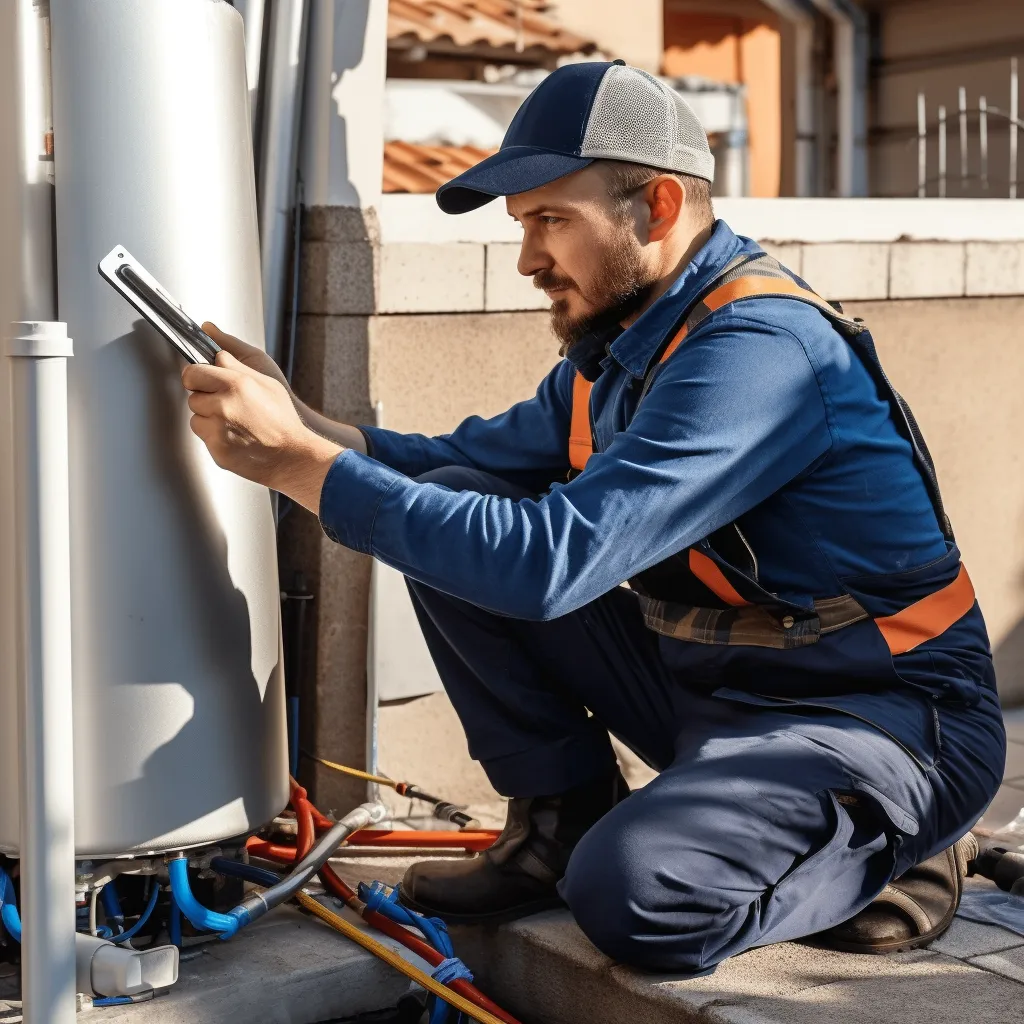
Active Systems:
Active solar-powered water heaters operate by using pumps to transfer hot fluids from collectors to a storage tank for later use. They are more efficient than passive solar thermal systems and produce significant quantities of hot water.
Passive Systems:
Passive solar water heaters utilize solar energy to heat water through natural convection that transfers heated fluid from collectors to a storage tank. They are an affordable alternative with low installation and maintenance expenses. In comparison to active systems, they produce a smaller amount of hot water.
Pros:
Solar-powered water heaters offer remarkable efficiency, leading to substantial monthly energy cost savings.
They are eco-friendly and operate on renewable energy from the sun.
Their lifespan is longer compared to conventional water heaters.
Cons:
Solar-powered water heaters are initially pricier than standard storage tank heaters.
Installing them might also require extra space and equipment, leading to installation issues.
There's a risk of water damage if the solar panels face damage or defects.
The hot water availability per use can be lower with some models due to limited capacity.
In certain locations, solar-powered water heaters may not qualify for utility rebates or incentives since they rely on sun exposure.
Heating and cooling issues may arise in warmer climates, while they are prone to freeze in colder climates.
Regular maintenance is necessary to ensure optimal performance.
Repair or replacement can be more expensive if the system gets damaged.


Point-of-Use Water Heaters
Rewritten: Point-of-use water heaters are compact and efficient systems that offer on-demand hot water, making them ideal for those who prefer traditional storage tanks. In addition to occupying less area, users can experience lower energy usage which results in cost savings over time.
Pros:
Point-of-use water heaters have high energy efficiency that results in low monthly expenses on utility bills.
Due to their compact size, they are easy to install and maintain, even in tight spaces.
They have a longer life expectancy when compared to storage tank heaters.
Cons:
Point-of-use heaters may come with extra expenses initially.
The could require additional installation space and ventilation.
Their lower hot water capacity may limit availability per use.
The risk of water damage is higher due to possible tank failure or leaks.
They operate at higher noise levels due to the heating component.
Point-of-use heaters may not meet utility rebates or incentives.
They are not recommended for high-demand areas.
It should be emphasized that point-of-use heaters may affect heating and cooling in warmer climates.
Water Heaters With Hydronic Boilers
Hydronic boilers can efficiently distribute heat throughout your home with water instead of air. They are capable of handling both domestic hot water and space heating in colder climates. When paired with tank water heaters, they additionally provide economical hot water supply.

Pros:
Water heaters featuring hydronic boilers provide cost-effective options, resulting in reduced monthly utility bills.
These systems are multifunctional, handling both space heating and domestic hot water.
Their compact designs allow easy installation even in small, confined spaces.
Compared to traditional tank water heaters, hydronic boilers boast an optimal lifespan.
Cons:
Water heaters featuring hydronic boilers have a steeper upfront price tag compared to traditional storage models.
Due to their diminished capacity they provide less hot water for each use.
Their operation might generate noise from the heater component.
In some regions, utility rebates or incentives may not be applicable to them.
In areas with high levels of hot water needs, these models might not be the best choice.
Repairing or replacing damaged units of these models could result in considerable expenses.

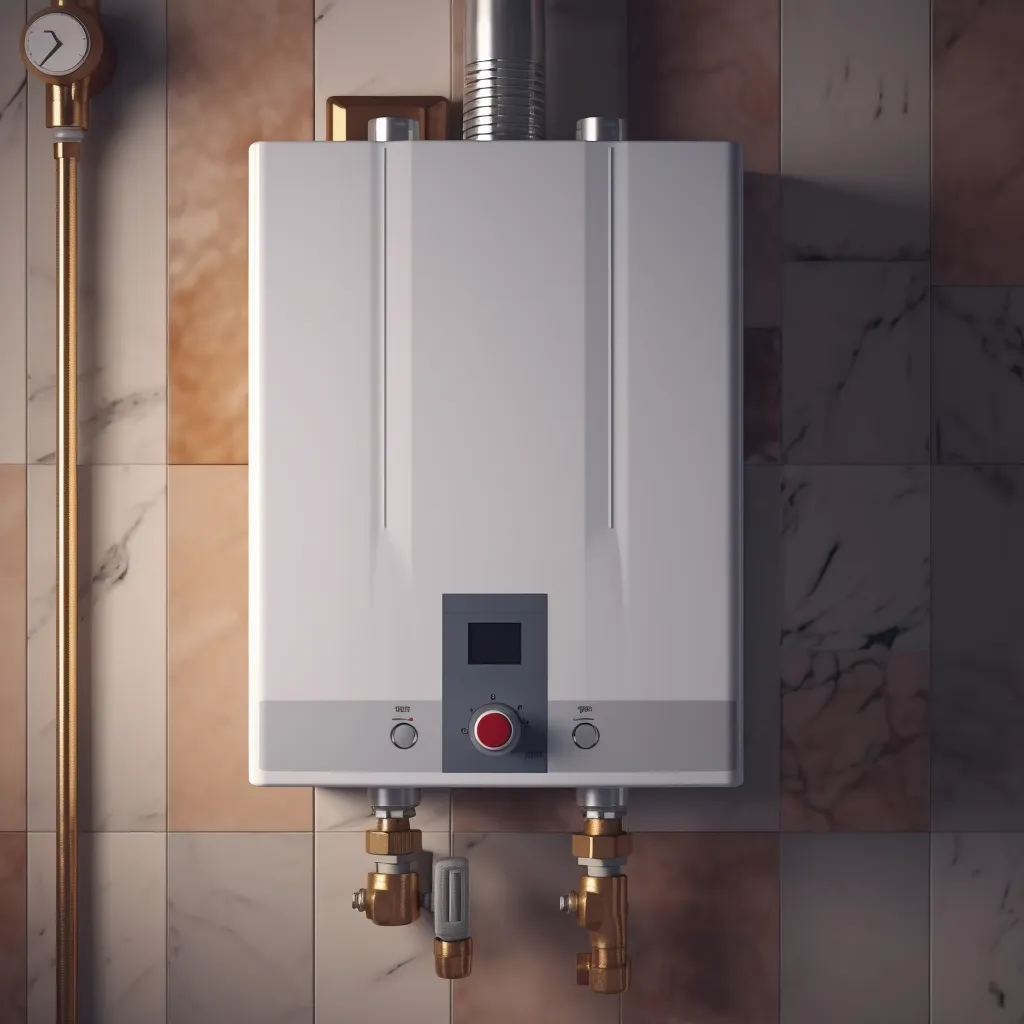
Smart Water Heaters
Smart water heaters are the latest technology for optimal water heating. With Wi-Fi enabled thermostats, hot water management and expense control can be done remotely from anywhere. Temperature settings can be customized via your phone and energy-saving options like vacation mode can help reduce monthly costs. Stay ahead in the game with smart water heaters.
Pros:
The smart water heaters' Wi-Fi enabled thermostat allows users to remotely control it via their smartphones or other devices.
The appliance comes with energy-saving modes, including vacation mode, to cut monthly energy bills.
Its compact design makes it perfect for installation in tight spaces.
It requires less maintenance.
It also has a longer lifespan compared to the conventional storage tank heaters, making it the ideal choice for smart homeowners.
Cons:
Smart water heaters come at a higher cost compared to conventional storage water heaters.
There is a possibility that some utility rebates or incentives may not apply.
You might have to update the software to use with newer devices.
If the Wi-Fi connection is insecure, there could be a risk to your security.
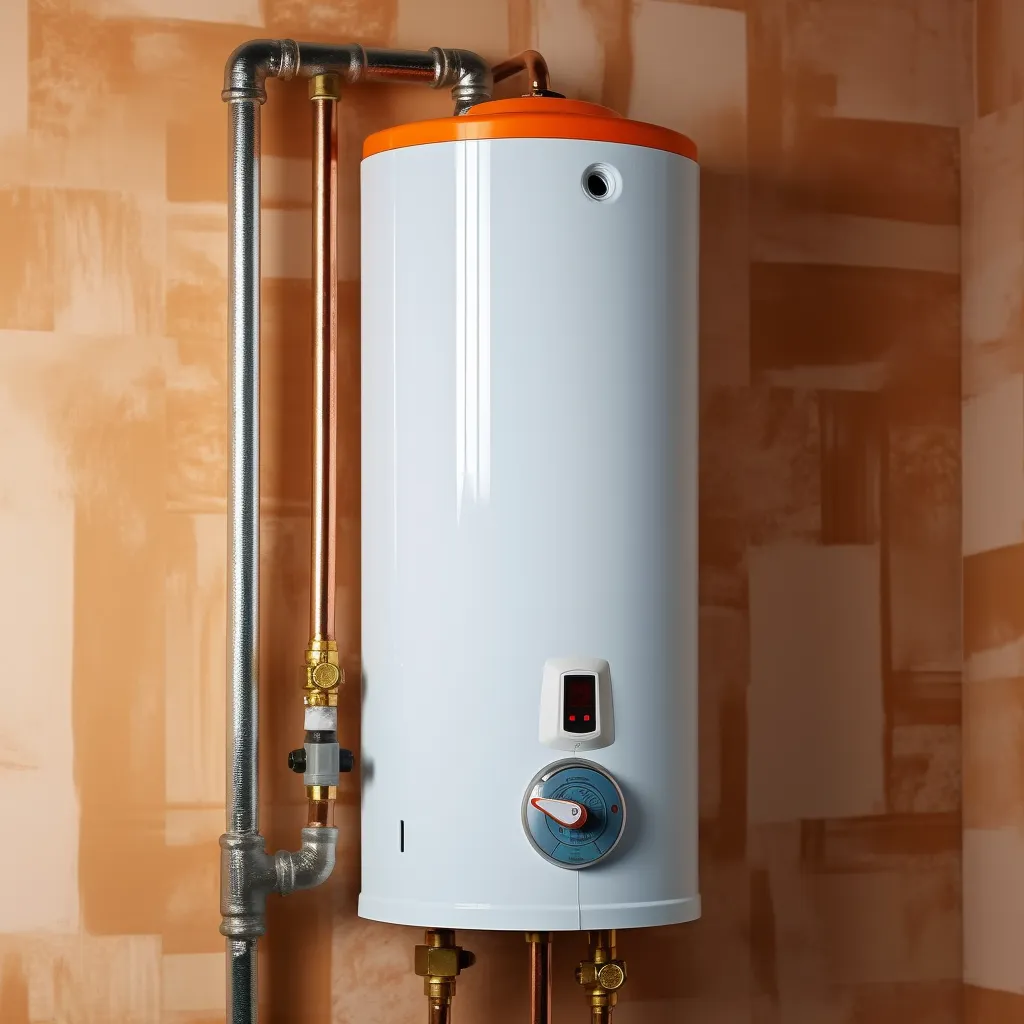
Condensing Water Heaters
Condensing water heaters are a new type of water heater that combine the qualities of tankless and storage tank models. These advanced systems use cutting-edge technology to collect heat from exhaust gases, leading to improved performance and cost savings.
Pros:
Condensing water heaters are highly energy efficient due to the renewable energy they draw from the surrounding air.
This lowers utility bills while providing a longer life span compared to tank water heaters.
They offer hot water during power outages.
Cons:
Condensing water heaters come at a higher price tag compared to traditional storage water heaters.
These units require more space and ventilation, thus making installation more complex.
These heaters have a relatively smaller capacity, limiting the amount of hot water provided per use.
It's crucial to note that if there is any tank failure or leakage, it can result in significant water damage problems.

Tips on choosing the right
water heater for your home
Choosing the proper water heater size is critical for cost-effective and comfortable living conditions. An inadequately sized water heater results in insufficient hot water supply and excessive running costs. On the other hand, a water heater that is too large would be an expensive and space-occupying unit. Determining the right water heater size for your daily household usage and lifestyle is necessary for cost-efficient comfort and a continuous hot water supply.
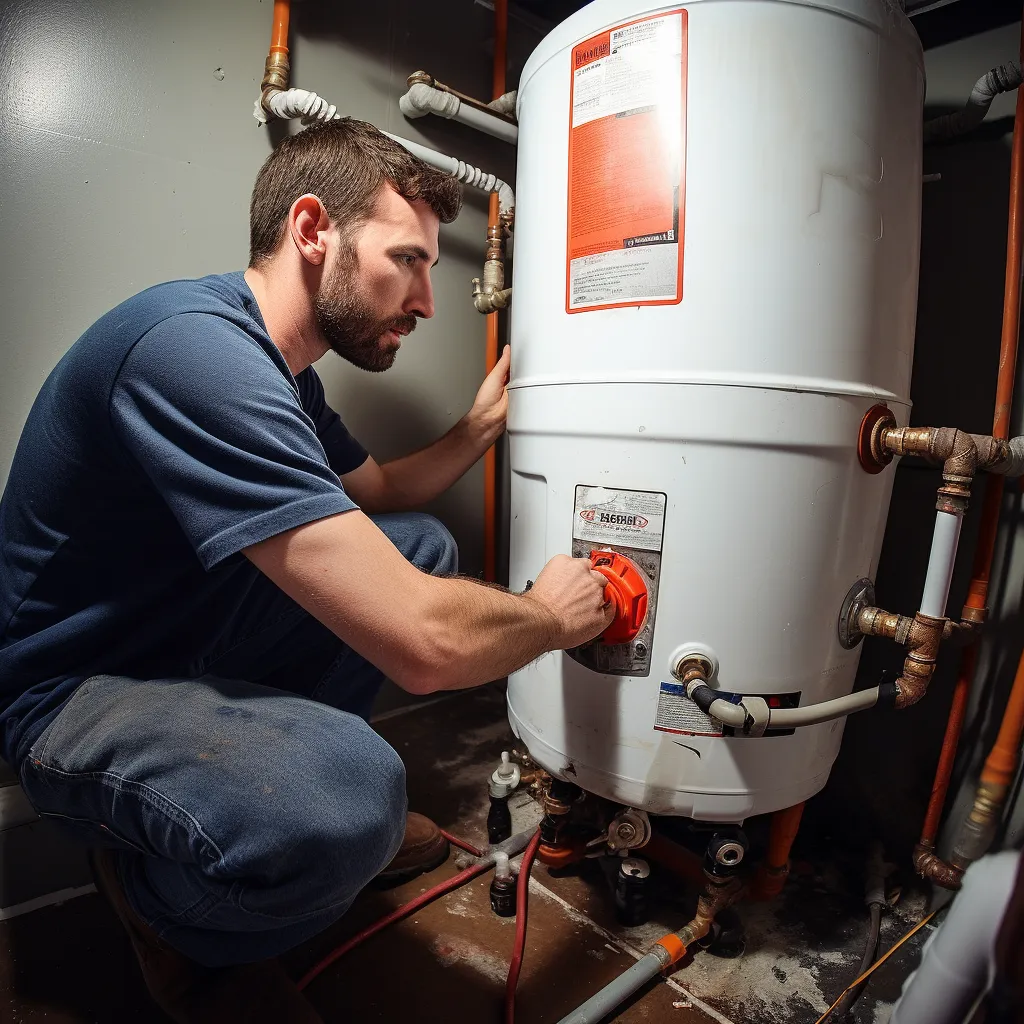
When should you
replace your water heater?
It's crucial for your home's plumbing to have a well-functioning water heater to provide hot water for showering, laundry, and dishwashing. The average lifespan of water heaters is typically 10-15 years, so it's recommended to invest in a new one if your current heater has surpassed its life expectancy.
Here are other signs that could indicate it's time to get a new water heater:
Leakage from the tank.
Unusual noises emanating from the heater.
Rusty hot water.
Lack of hot water.
Fluctuating water temperature.
High energy bills.
Maintenance tips for achieving
maximum water heater efficiency
Proper maintenance of your water heater can prevent unexpected problems. To maintain energy efficiency and keep bills low, it's important to flush the tank regularly to remove sediment buildup. Additionally, inspect the anode rod and check the pressure relief valve while also keeping the area around the heater free from clutter. These routine tasks ensure that your water heater lasts longer and remains affordable while providing you the luxury of warm showers.
Benefits of hiring a licensed plumber
for water heater replacement
Replacing your water heater may seem tempting to do yourself, but there are several benefits to hiring a water heater professional that you should consider:

Skilled water heater experts are trained to install new water heaters safely and efficiently.
They offer valuable advice on the best type and size to suit your needs.
Licensed plumbers also ensure that your water heater complies with local building codes during the installation.
Entrusting this work to a professional will help troubleshoot and quickly solve any installation issues.
These experts have all the necessary tools and equipment to carry out the job effectively.
Hiring a licensed plumber to replace your water heater can save you time and money and ease stress.
Ready to Solve Your Plumbing Needs?
For reliable, expert plumbing services tailored to the needs of Concord and its neighboring cities, look no further than EMR Plumbing and Heating. We’re here for you 24/7, ensuring that your plumbing is always in top condition.
Call us today to schedule your service!
Business Hours: Monday - Sunday, 24 Hours
Phone Number: (603) 634-8285
Location: Concord, N.H., serving all surrounding areas.
Trust your local experts at EMR Plumbing and Heating for professional, timely, and efficient plumbing solutions.
GET IN FULL TOUCH
PHONE: (603) 634-8285
EMAIL:
ryan@waterheaterconcord.com
EMR Plumbing and Heating
Concord, N.H. 03303
